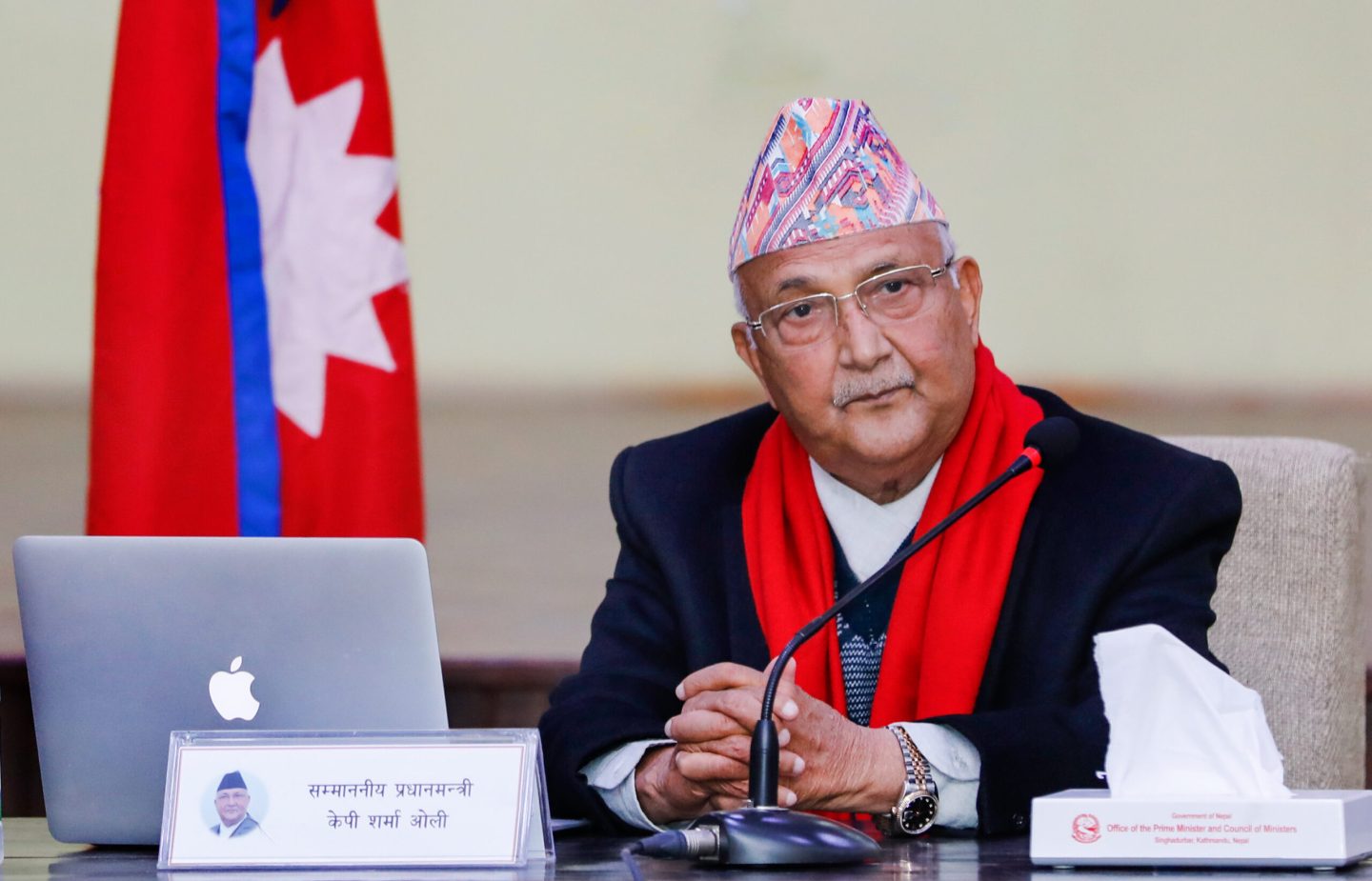0%

Prime Minister KP Oli. (File Photo)
KATHMANDU: When Prime Minister KP Oli came to power in 2018, his first promise was to bring Nepal “good days” by which he meant prosperity, zero-tolerance to corruption, good governance, smooth relations with neighbors, among others.
But his big-bang entry and the fervor ended frustratingly with most of his commitments without taking shapes amid turns and twists.
People, in the 2017 elections, gave him and his party – CPN-UML — the largest parliamentary mandate, or to an unprecedented win, anticipating a change in the country that desperately needed a transformation.
He was then a popular and a “nationalist” leader because of his slogans of political stability and prosperity.
This oratorical genius — now a caretaker prime minister – started focusing on concentrating more power in his own hands. And, there was no doubting his conviction that the country was heading toward achieving prosperity, and wielding influence in international relations.
The country had numerous problems, and he was not unaware that they were too much for him to handle single-handedly.
People had wanted transparency in politics since the Nepali people remained, as always, desperate for political transparency and integrity, and an end to corruption.
PM Oli, however, failed to realize that corruption was unconditionally unacceptable, no matter who is involved.
Instead, corruption was politicized since Prime Minister Oli himself tried to protect certain people, and termed any voice against corruption as a conspiracy to defame them despite his pledge to control deep-rooted corruption.
His three-and-a-half-year long term, in fact, ended with political twists and turns, agitations and demonstrations against what his opponents said “unilateral” decisions and working style.
PM Oli, however, believed that occasional outcries or the brief bouts of anger were simply useless deterrents as he viewed his opponents with suspicion, and scrutinized all activities and decisions with political bias.
Initially, in 2018, much went well with hopes of bright days ahead with Oli’s popularity at its helm. He also emerged as the most powerful prime minister in Nepal’s political history.
However, the first mistake that he made was to consider that he alone can bring about change in the country.
Even on May 10, despite aware that he would not secure the vote of confidence in the House, used all his skills to shrewdly bundle speeches with gags and aura of revelation to claim that his government tirelessly worked for the nation-building and that his government was repeatedly targeted for partisan and narrow interests.
However, opposition party leaders said his government failed spectacularly to address the coronavirus pandemic, which has been the leading issue in the country in recent months.
Political pundits say during his tenure, he tried to stake a supreme position for himself as an infallible leader, who has a final say over his works and accomplishments but trying to be above the accountability for government failures.
With his oratorical skills, PM Oli was hailed as an orator endowed with the power to fabricate his words and for his snobbish parlance.
In fact, observers say Oli takes delight in his grandiloquent jargons as he considers himself a jack of all trades.
Unfortunately, Oli’s fortunes waned since December 2020 when his government recommended the dissolution of the House of Representatives, and announced fresh elections in April and May.
Nepal’s politics in the last quarter of 2020 – after December 20 when he dissolved the House of Representatives — took some unpredictable and undeterminable turns.
And on May 10, 2021, embattled Prime Minister Oli lost a trust vote in the House of Representatives, in what can be dubbed as a fresh setback to him who was trying to tighten his grip on power.
He could secure only 93 votes with as many as 124 lawmakers voting against him, during a special session of the HoR.
No prime minister or a government in Nepal has completed its five-year tenure since 1990, after the restoration of democracy.
What has to be noted with emphasis is that the parliaments in Nepal have been dissolved owing to the internal disputes in the ruling parties.
Most importantly, he missed a golden opportunity to lead the country towards prosperity despite being a Prime Minister with a nearly two-thirds majority in parliament.